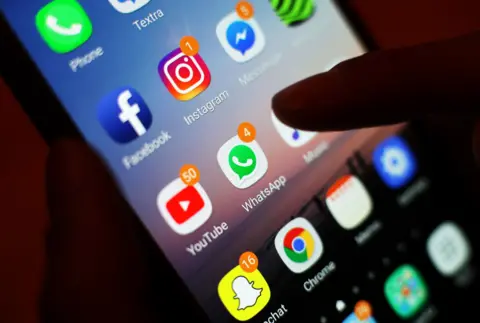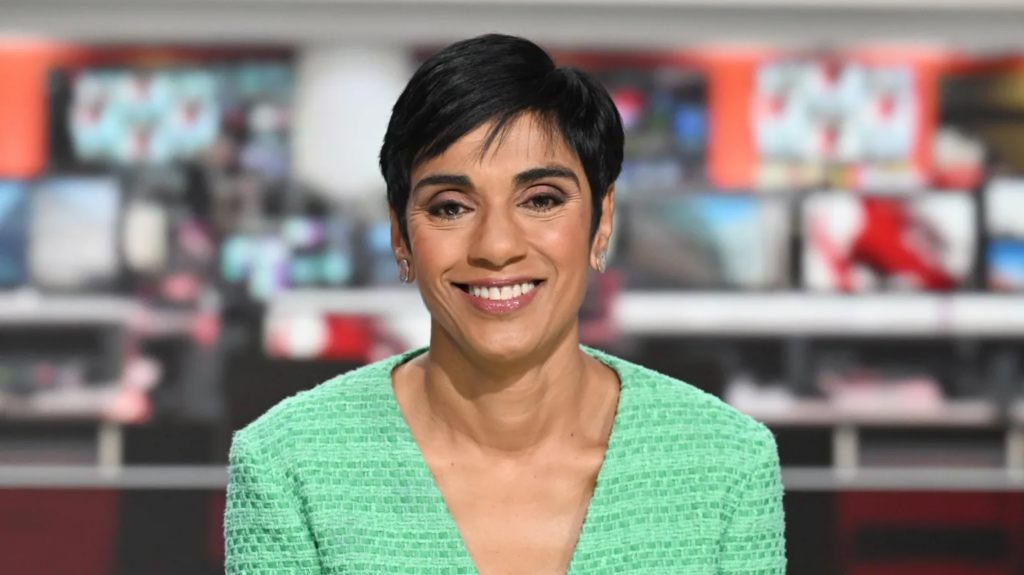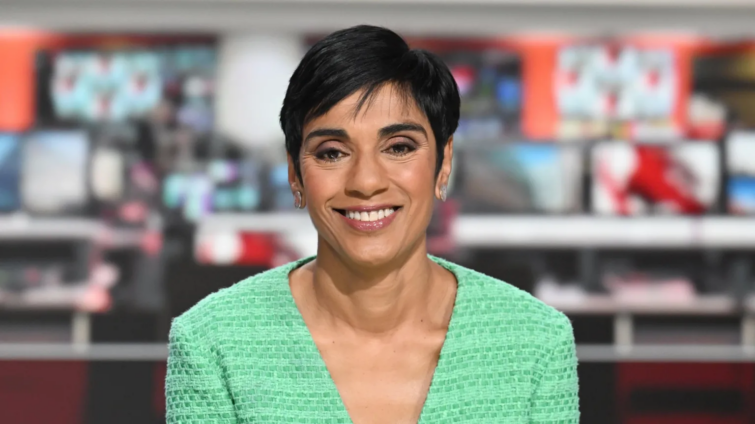
Audio By Carbonatix
Online has for the first time overtaken television in an annual survey of the UK's news habits.
Research by the broadcast regulator Ofcom reveals 71% of the population said they used online services for news versus 70% for TV news bulletins.
Over the last year, online sources grew from 68% to 71%, while social media also saw a rise from 47% to 52%. For people aged between 16 and 24, the number saying they use social media for news was 82%
The most commonly mentioned online news sources were Facebook, YouTube and Instagram.
Meta which owns Facebook, Instagram and WhatsApp, was the second biggest news source in the survey with 40% saying they used it for news.

The BBC remains the biggest single source, with 68% of people saying they turn to it for news. However, this is a survey of what people say they do - analysis based on actual usage can paint a different picture, showing for instance that BBC News reaches 75% of the UK population on an average week.
The biggest falls in the survey were for traditional news providers. Newspapers and their websites saw the number of people saying they used them drop from 39% to 34%. TV news fell from 75% to 70%. BBC News online also fell from 22% to 18%.
The survey, however, does not measure usage of specific sites. The BBC (1.2 billion visits) and CNN (710 million visits) are the two largest news websites in the world, according to the UK Press Gazette's most recent monthly survey. Both saw significant increases in traffic over the last year.

The source that saw the biggest increase is YouTube. 19% of those surveyed say they used it for news. In 2023, it was just 7%. However, last year YouTube was not mentioned by name and was just referred to as "other online", which Ofcom says probably accounts for the large rise.
Other sources such as the Guardian (10%) and the Daily Mail (14%), which have both a large online presence as well as a print newspaper, had similar figures to last year.
The largest UK newspaper website was the Guardian with 365 million visits in July 2024.
However, traditional newspapers saw a big decline, with even those over 55 saying they read a print newspaper dropping from 38% to 32% in just a year.
Nevertheless, the most mentioned single news source in the survey remains BBC One. TV as a whole maybe in decline but 43% of those surveyed said they turned to BBC One for news, 13% ahead of its nearest rivals, ITV and Facebook, both on 30%.
Latest Stories
-
Bus returning from 31st night prayer kills 2, injures dozens at Assin Dansame
2 minutes -
Political parties must stay out of local governance – Andrew Bediako
2 minutes -
Beyond Witchcraft: Why preparation, not spiritual fear, determines success
3 minutes -
Margaret Korme Tetteh
41 minutes -
Sammy Gyamfi’s work at Goldbod in few months would take someone five years – Ato Forson
56 minutes -
From Accra to Wuzhen: The Ghanaian schoolgirls making their mark in global AI
58 minutes -
Ghana must prioritise value addition to sustain IMF gains – Prof Asuming
1 hour -
Man allegedly poisons his incoming girlfriend over GH₵100 at Buduburam
1 hour -
Jennifer Frimpong: Ghana’s health system faces funding shock, urgent reforms needed
1 hour -
Tighter cocoa supply lifts prices as Ghana records good crop conditions
2 hours -
KAAF University donates to Widows, urges Public to end Discrimination against Elderly Widows
2 hours -
NAIMOS task force disrupts illegal mining operations along Ankobra River
2 hours -
President’s New Year message lacked hope and sincerity – NPP’s Senyo Amekplenu
3 hours -
Ebo Noah remanded pending psychiatric exam, to reappear on January 15
3 hours -
Our public university system is falling down
3 hours

